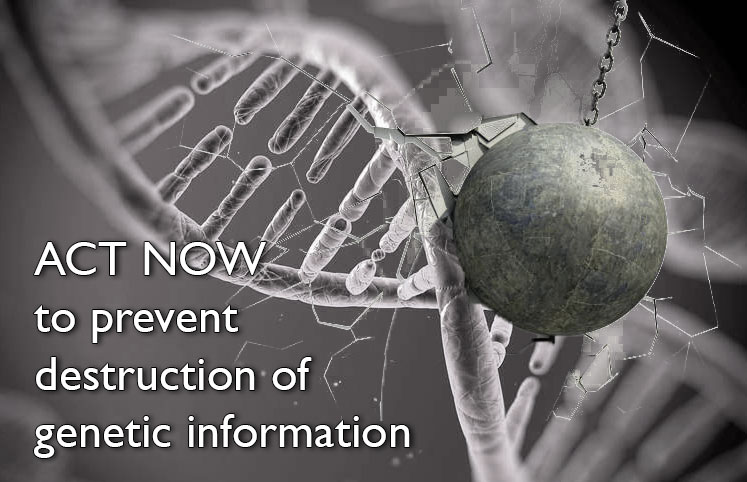Archives with data about the biological parents of donor-conceived children are being transferred to the National Archives of the Netherlands. These records contain information about the donors who contributed genetic material for conception. A proposed selection list is now open for review until 11 January 2023. The proposal wants to destroy data about donors 110 years after the last treatment.
Please do not hesitate to let the archives know your viewpoint. You can use the contact form or send an email to info at nationaalarchief.nl. See below for texts suggestions in English or Dutch..

Nature of the records that are going to be destroyed
The records are part of the donor registration that allows donor-conceived people to find their biological parents. The records include data about people whose sperm or eggs were used to conceive children, and links children to their biological parents.
The records are for donors who donated after the introduction of the Artificial Insemination Law of 2004, which made anonymous donations illegal. It does not include information about donors who wish to remain anonymous.
The proposal wants to destroy these records after 110 years. The 110 years gives the children who were conceived the chance to consult their records (access would be restricted). But the destruction would mean that these records will never become public, and will not be available for descendants of the donor-conceived person or the donor.
Who should care about this?
- Anyone who thinks that people have a right to information about their biological ancestry
- Genealogists, who want to help future genealogists to have access to information about biological ancestors
- Academic researchers, who want to help future researchers to have access to information about genetic networks
- Medical researchers, who want to research genetic networks to trace hereditary diseases to identify carriers of genetic mutiations
- Donor-conceived people, who want their descendants to have the option to know their genetic ancestry
and anyone else who thinks information about biological descent is worth saving for the future.
Text suggestion (English)
Subject: Viewpoint selection list / zienswijze selectielijstContent:
I want to present my viewpoint regarding the proposed “Selectielijst van de Stichting donorgegevens kunstmatige bevruchting (Sdkb) vanaf 23 juli 2003.” I object to the proposed retention schedule for point 10, which would destroy the treatment and donor data 110 years after the treatment. I think these records should be permanently perserved.My reasons:
- I think has the right to know their biological origins.
- Medical history is important for the treatment of different illnesses. It is important for descendants to know who their biological ancestors are.
- This information is required for genealogical research. This is an important activity for many people.
- Preserving these records supports the mission of the National Archives to “find answers to questions about your life.”
- Information about biological descent is not recorded in other records. If these records are destroyed, this will prevent proving biological descent in many cases.
I am a [professional genealogist, amateur genealogist, etc, explain your interest]. This decision will limit [explain how this affects you or future people like you].
I request that you will reconsider the proposed destruction of these records about donors, and to permanently preserve these records.
Text suggestion (Dutch)
Onderwerp: Zienswijze selectielijstInhoud:Hierbij dien ik mijn zienswijze in op de voorgestelde Selectielijst van de Stichting donorgegevens kunstmatige bevruchting (Sdkb) vanaf 23 juli 2003. Ik heb bezwaar tegen volgnummer 10, waarin voorgesteld wordt om gegevens over de behandel- en donorgegevens op termijn te vernietigen. Ik vind dat deze gegevens permanent bewaard moeten blijven.Mijn redenen:
- Iedereen heeft het recht om te weten van wie ze biologisch afstammen.
- Medische geschiedenis is belangrijk voor de behandeling van diverse ziektes. Het is voor nabestaanden belangrijk om te weten van wie ze afstammen.
- Deze gegevens zijn nodig voor genealogisch onderzoek. Dit is een zingevende bezigheid voor veel mensen.
- In de missie van het Nationaal Archief staat “In het Nationaal Archief vind je antwoorden op vragen die betrekking hebben op jouw leven.” Het bewaren van deze gegevens helpt mensen om wezenlijke vragen te beantwoorden.
- Deze archiefbescheiden bevatten gegevens die niet elders zijn vastgelegd. Als deze gegevens vernietigd worden, is het in veel gevallen niet mogelijk om de biologische afstamming te bewijzen.
Ik ben [professioneel genealoog, amateur genealoog, vul in wat van toepassing is]. Deze voorgestelde vernietiging belemmert [vul aan waarom jij of anderen zoals jij hier last van hebben].Graag wil ik jullie verzoeken om terug te komen op de voorgestelde vernietiging, en om de gegevens over donoren permanent te bewaren.


Hierbij aangepast en per contact formulier verzonden! Goed initiatief.